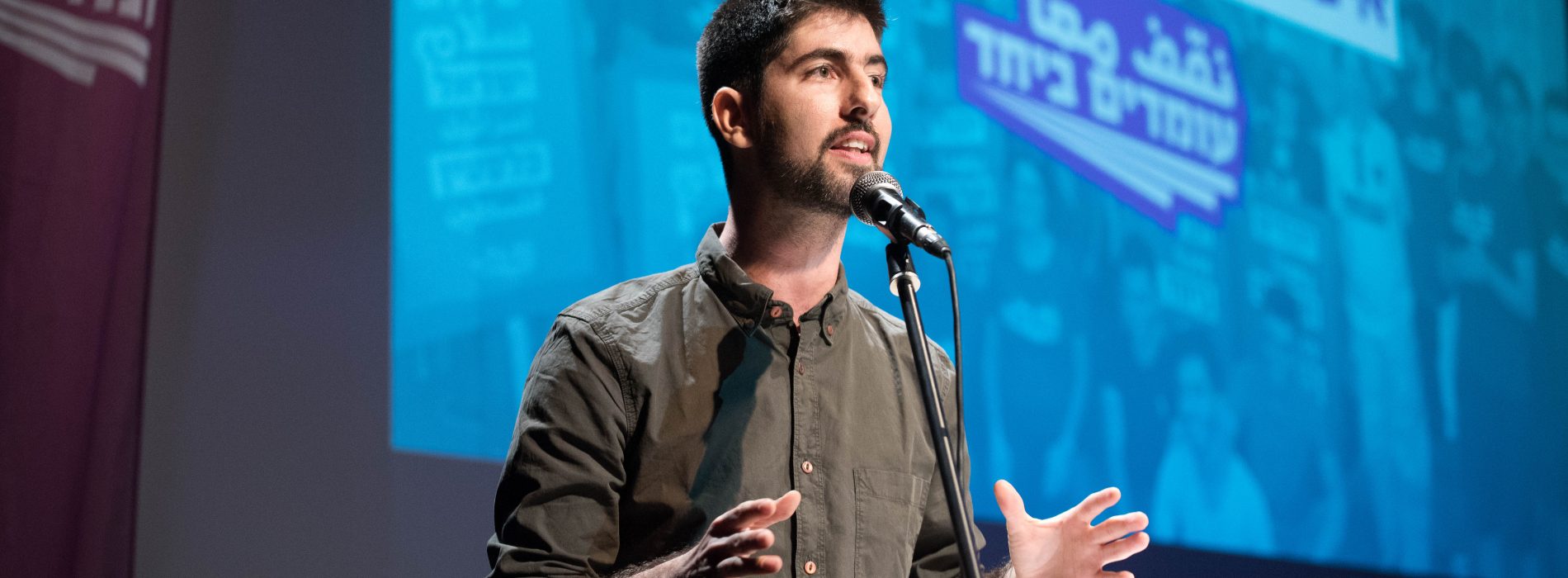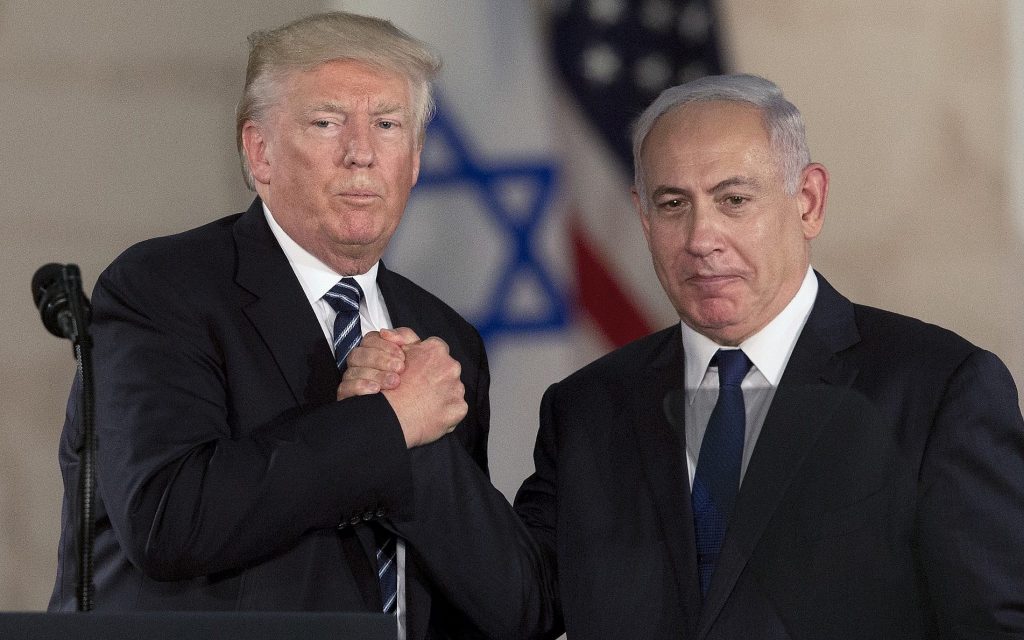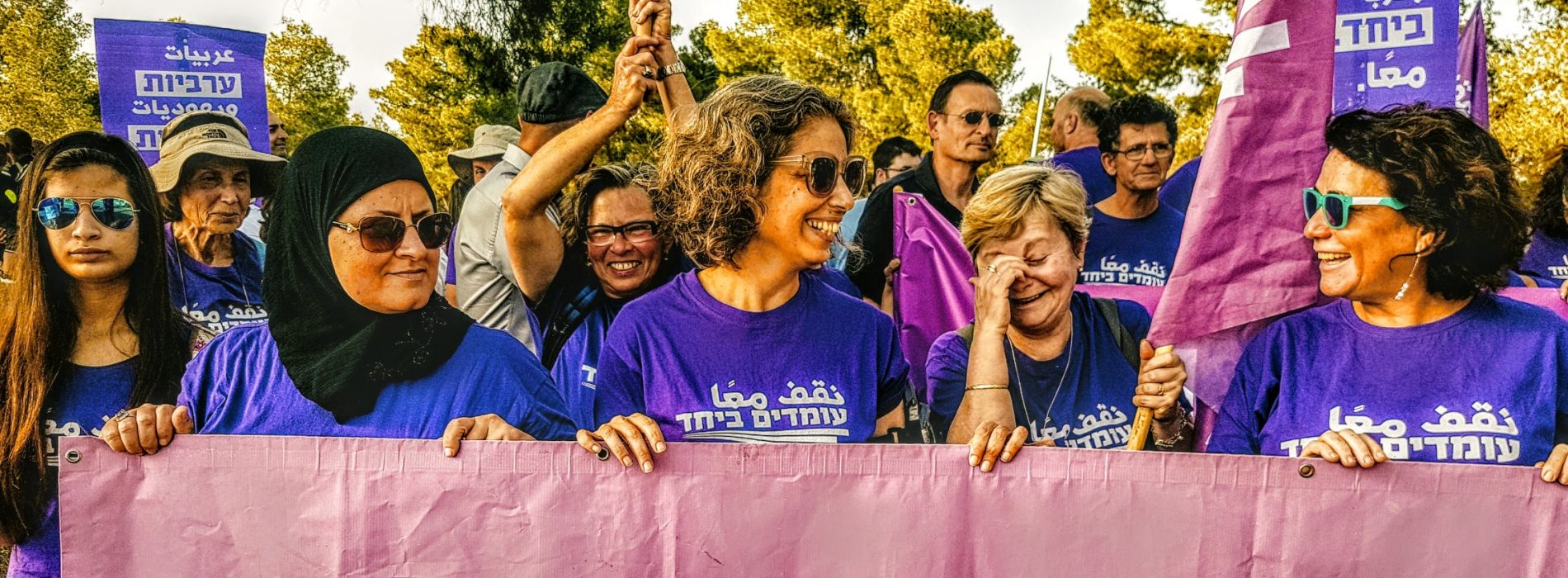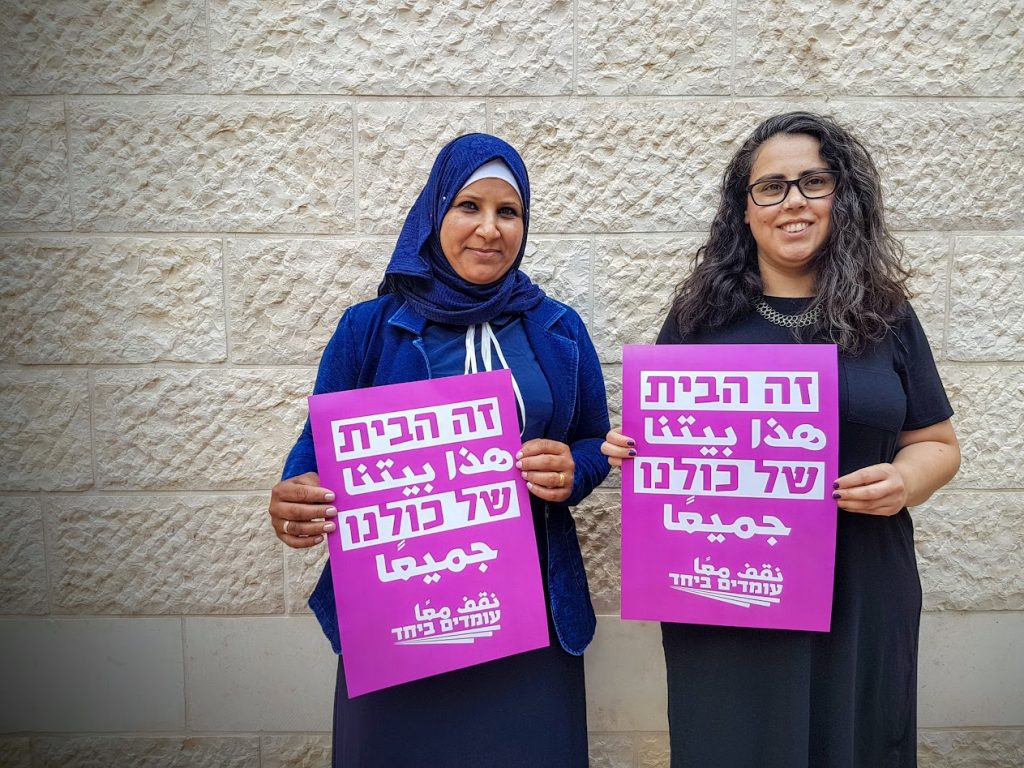- About Us
- Policy Center
- Learn
- Press Room
- Blog
- Get Involved
- Donate
- Donate to J Street Online
- Make a Gift in Someone’s Honor or Memory
- Make a Monthly Gift
- Tax-Deductible Donations
- Giving by mail

J Street is proud to stand with Israeli organizations that do amazing work to help create a better future for Jewish Israelis, Arab Israelis and Palestinians. As part of a series of profiles focused on our progressive Israeli partners, we sat down with Alon-Lee Green, co-founder of Standing Together.
Raised by a single mother and growing up as a gay teenager in Tel Aviv, Alon-Lee Green had always been interested in politics and social justice — but it was his job at a Tel Aviv cafe chain which pushed him into political organizing. The pay was low. Conditions were bad. Tips were going directly to the owners. “All my fellow workers and I were exploited by the owners,” he says.
Green unionized the workers and led a grueling, six-week strike. For his efforts, he was fired. He sued and the cafe was forced to hire him back, but his bigger victory was for the workers he led. “We won much better conditions, and we actually signed the first-ever collective agreement of dining and hospitality in Israel,” he says. “It was the first union of a coffee shop in Israel.”

Several years later, in mid-2011, Green became a lead organizer in massive social justice protests which brought hundreds of thousands of Israelis to the streets to rally against the rising cost of living. The protests brought renewed attention to lower and middle-class economic issues, but Green saw the subsequent dissipation of the momentum as a missed opportunity.
“Why can’t we build power, and why are we actually losing power? Why after every struggle are we losing to despair?” he and fellow activists asked themselves, dismayed that many of their contemporaries had chosen to leave Israel rather than take up the fight. “Our answer was that we lack a movement, we lack a vessel that holds the momentum and energy.”
That answer led to the formation of Standing Together — Omdim B’Yachad — a progressive advocacy organization rooted in what Green had learned in his earlier experiences: Effective organizing needs to build coalitions, connect with people’s everyday lives and be driven by a sustained organizing machine.
Today, Standing Together leads thousands of advocates across Israel as they campaign for minority rights, rally against the occupation and push for policies to help reduce economic inequality. The leadership team is half Jewish, half Arab, with an even gender split. Roughly 1,000 core members have the chance to vote on key decisions. “It’s a fully democratic movement,” Green says.
Fundamental to Standing Together’s approach is building the broadest possible coalitions for the issues they campaign on — an organizing principle they see as the natural answer to the politics of fear and division. “We are working quite strongly to be as broad, as diverse as open as possible,” Green says.
“For many years, the government pit marginalized communities and groups against each other, they let us fight against each other rather than looking to those in power,” he says, comparing the Netanyahu administration to other ‘strongman’ leaders such as Donald Trump, Jair Bolsonaro, Boris Johnson and Viktor Orbán.

Trump, Netanyahu and other right-wing politicians practice the same politics of divide and conquer, Green says.
But Green is also critical of progressive responses which are rooted solely in calling out racism and deploying values-based rhetoric. “If you just think about values and how bad the other is instead of creating a platform that’s about making people’s lives better, you lose,” Green says. “We are tackling racism not only by saying it is wrong, but by creating the politics of shared interests — a politics that is centered on self-interest, not on morals or abstract values.”
Rather than Israelis campaigning against the occupation generally, “we would say that we have the rights as parents not to see our kids sent to guard settlements and oppress Palestinians.” Rather than Israelis campaigning for ‘peace’ in Gaza, “we believe in the south you have the interest to live where missiles are not being shot at your houses or kindergarten.”
Green says marrying values and self-interest can have strong cut-through, especially with groups not predisposed to support progressive messages. “People expect Arabs to talk about their own interests,” he says, “it breaks a wall when they’re talking about you.”

Standing Together’s success in creating broad-based coalitions stands in stark contrast to Israel’s splintered political parties. whose division has been immensely frustrating to many on the left.
“The only way to block the extreme right wing — to stop them destroying our society, damaging the lives of Israelis and Palestinians and creating a bigger gap between rich and poor — is to create a block between the Arabs and the Jews on the center and the left,” Green says. “Numbers-wise, we just don’t have the numbers if we’re only Jews. Values-wise, Arabs are legitimate citizens in Israel and Arab representatives are legitimate representatives.”
For political inspiration, Standing Together has instead looked abroad, learning from groups in the United States and Europe, including Move On and J Street. He says he’s greatly encouraged by American Jewish groups that took a stand against the Trump administration’s racist immigration and refugee policies, and critical of those who have stayed silent. “As a minority who also holds the historical context of the Jewish people, you really ought to know what it is to be an endangered minority,” he says.

Standing together recognizes that Israel’s fractured communities have a shared self-interest in creating a better future, Green says.
Green also has a clear message for the international diaspora aiming to help the cause from abroad. “Differentiating between the government of Israel and the citizens of Israel is the most important thing,” he says, critical of broad, indiscriminate BDS campaigns. “Boycotting us or not seeing us as a legitimate partner is actually not understanding that this government is not only bad for the Palestinians, but for Israelis too.”
But Green says Israel is strong enough to bear harsh, well-deserved criticism for its treatment of Arab Israelis and Palestinians. “It’s sometimes believed to be a good friend is to have a soft hand and be accepting of behaviors that are just unacceptable,” Green says, “but that’s being the worst friend you can imagine. A good friend would be one that tells Israel ‘you’re drunk, and you should go to sleep and wake up with better ideas.’”
And just as there needs to be a shift in what it means to be pro-Israel abroad, Green says he hopes to see a shift in how patriotism is viewed within Israel as well. “How can you be a patriot for only 80% of the people?” he asks. “Being a patriot is not blindly supporting the government — being a patriot is creating a better place for all Israelis.”
J Street is at the forefront of a political movement to push back against the Trump-Netanyahu agenda and lay the groundwork for a new era of progressive, values-driven, diplomacy-first American leadership.